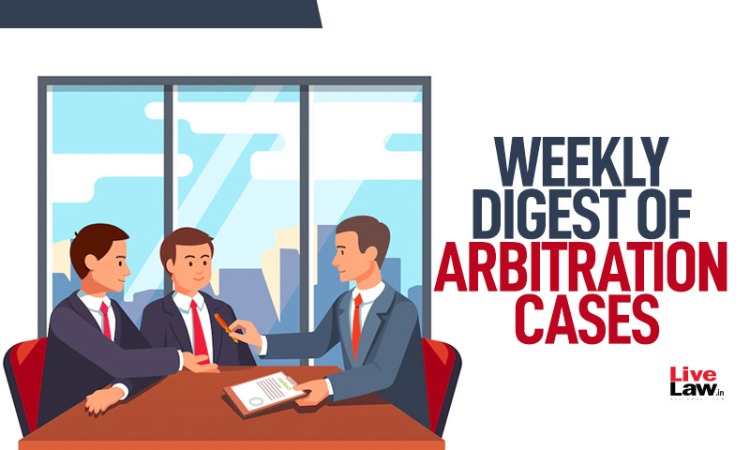Arbitration Cases Weekly Round-Up: 10th July To 16th July, 2022
Parina Katyal
17 July 2022 8:00 PM IST

Next Story
17 July 2022 8:00 PM IST
Supreme Court: Court Under Section 34,37 Arbitration Act Cannot Modify An Award ; It Can Only Remand: Supreme Court Case Title: National Highways Authority of India versus P. Nagaraju @ Cheluvaiah Citation: 2022 LiveLaw (SC) 584 The Supreme Court observed that, under Section 34 or 37 of Arbitration and Conciliation Act, a Court cannot modify the award passed by the...
